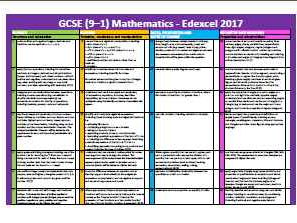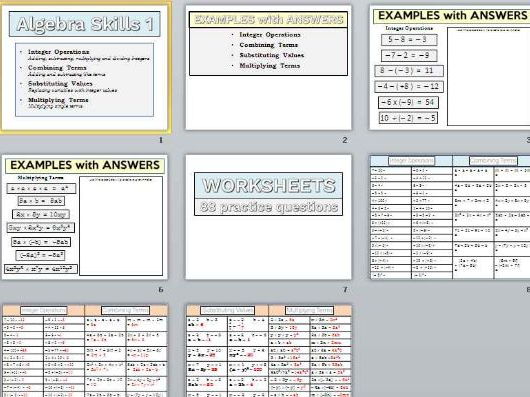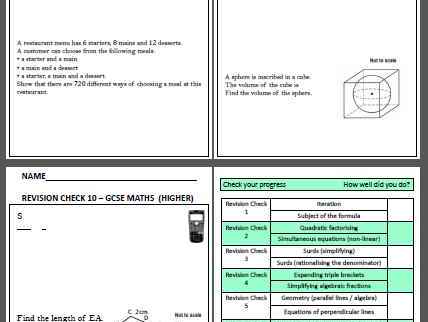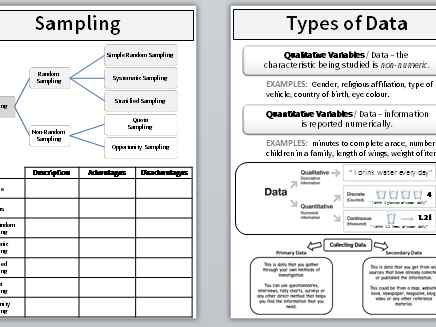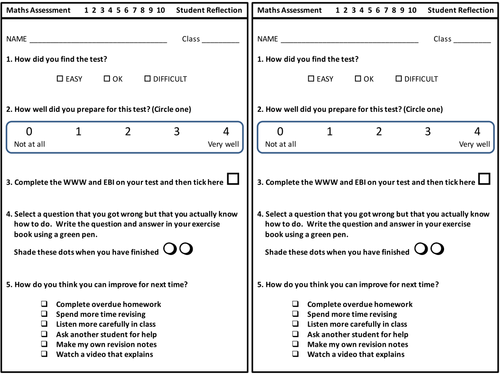10Uploads
12k+Views
1k+Downloads
All resources

GCSE MATHS (9-1) RAG SHEET Full Curriculum Checklist
A summary of the full curriculum requirements based on the Edexcel specifications and exemplification documents. Can be used as a checklist, outline, RAG sheet, poster or personal progress tracker. Excel file included so that you can edit or make changes to meet your own needs. More will be added to this set later to support the use of the checklist.

Algebra Skills 2 - examples, worksheets and answers
The second set of essential Algebra skills with a variety of examples, 42 practice questions (2 pages of worksheets covering 4 skill areas) and all answers included. The 4 areas covered in this second set are:
Dividing Terms, Expanding Single Brackets, Expanding Double Brackets and Writing Expressions. The PowerPoint Presentation will allow you to adapt or make changes as needed (12 pages). I have also included the two worksheet pages as a separate file (pdf) so that you can print them for your classes.

Algebra Skills 1 - examples, worksheets and answers
The first set of essential Algebra skills with a variety of examples, 88 practice questions (2 pages of worksheets covering 4 skill areas) and all answers included. The 4 areas covered in this first set are:
Integer Operations, Combining Terms, Substituting Values and Multiplying Terms. Two files are included - the first is a pdf for easy access and printing, the second is the PowerPoint Presentation which will allow you to adapt or make changes as needed (12 pages).

Quadratic Functions - Sketching and Interpreting
A useful flowchart to show the simple steps used for sketching or interpreting Quadratic graphs.

Knowledge Organisers 1A, 1B, 1C and 1D - Statistics (Collecting, Analysing and Displaying Data)
This is the first set of knowledge organisers (revision summaries) for Statistics - it can be used for any year group but is mainly for KS2, KS3 or Foundation KS4. This set consists of 4 separate pages of A4 notes, but it also works well if you print all 4 pages as an A5 booklet. I will be making more in the future, so please visit again if you like them.

Operations with Numbers
This worksheet covers the second GCSE (9-1) requirement for number skills:
"apply the four operations, including formal written
methods, to integers, decimals and simple fractions
(proper and improper), and mixed numbers – all both
positive and negative; understand and use place value
(e.g. when working with very large or very small
numbers, and when calculating with decimals).*"
*Examiners will test non-calculator arithmetic, including long multiplication and division, on the non-calculator paper. No method will be specified; any correct
method will be accepted.

GCSE Maths Higher Starter Revision Questions
Revision Questions to use as starters in class. Best printed as A5 handouts for students and then easily and quickly marked by the teacher once handed in. Tried in class and it worked well, students found them challenging and useful as reminders of things they have forgotten how to do.

New A-level Year 1 / AS Mathematics (Statistics component Part 1)
Based on the work covered in the Statistics section for the first year of the new A-level curriculum . Best printed as an A5 booklet or back-to-back A4 handout. Some sections allow students to complete tables, add notes, or simply highlight important concepts. This is the first in a series of booklets/handouts designed to serve as "interactive knowledge organisers".

Student Assessment Reflection (for use after a test or exam)
If you need something quick and easy that takes the students step-by-step through the reflection process after a recent test, then this will help. Instead of just completing WWW (what went well) and EBI (Even better if), students are asked to reflect on how well they prepared for the test and what they can do to improve. It is in PowerPoint format, so please feel free to edit it for your own needs. It prints two per page on A4.

Ordering and Comparing Numbers
This worksheet covers the first GCSE (9-1) requirement for number skills:
"order positive and negative integers, decimals and
fractions; use the symbols =, ≠, , ≤, ≥"

